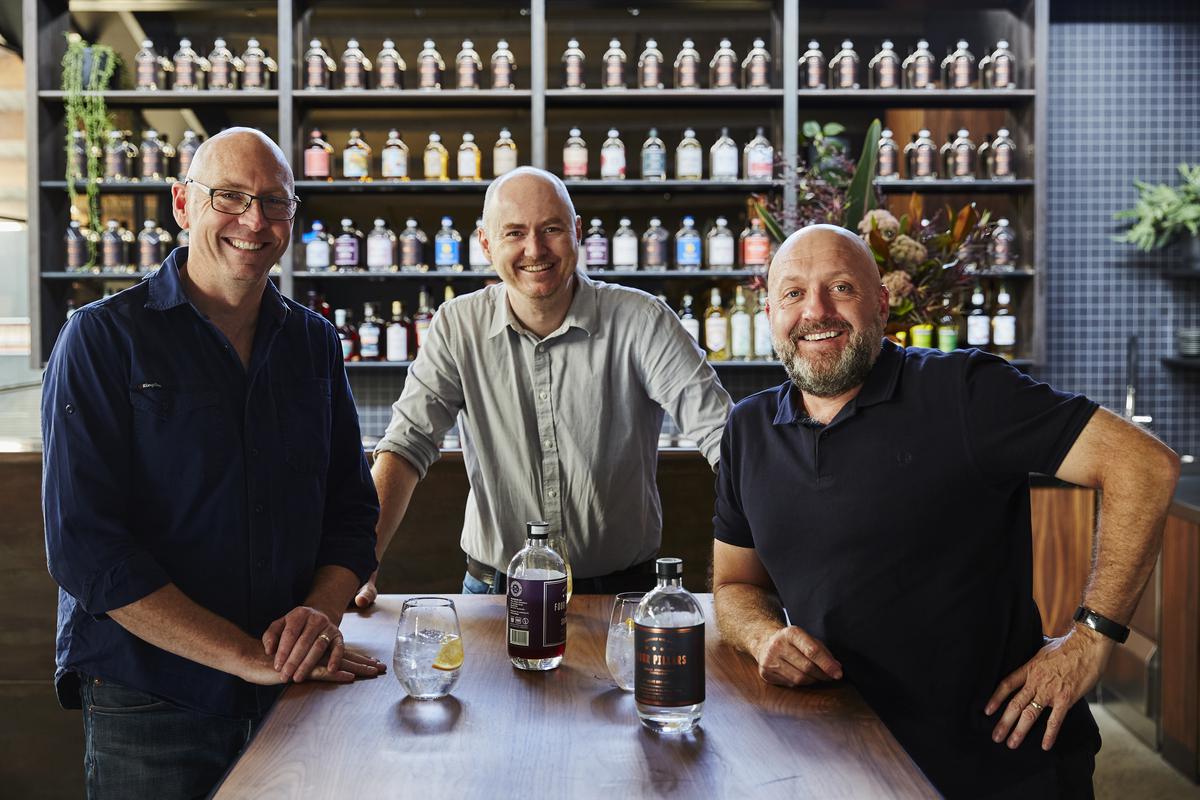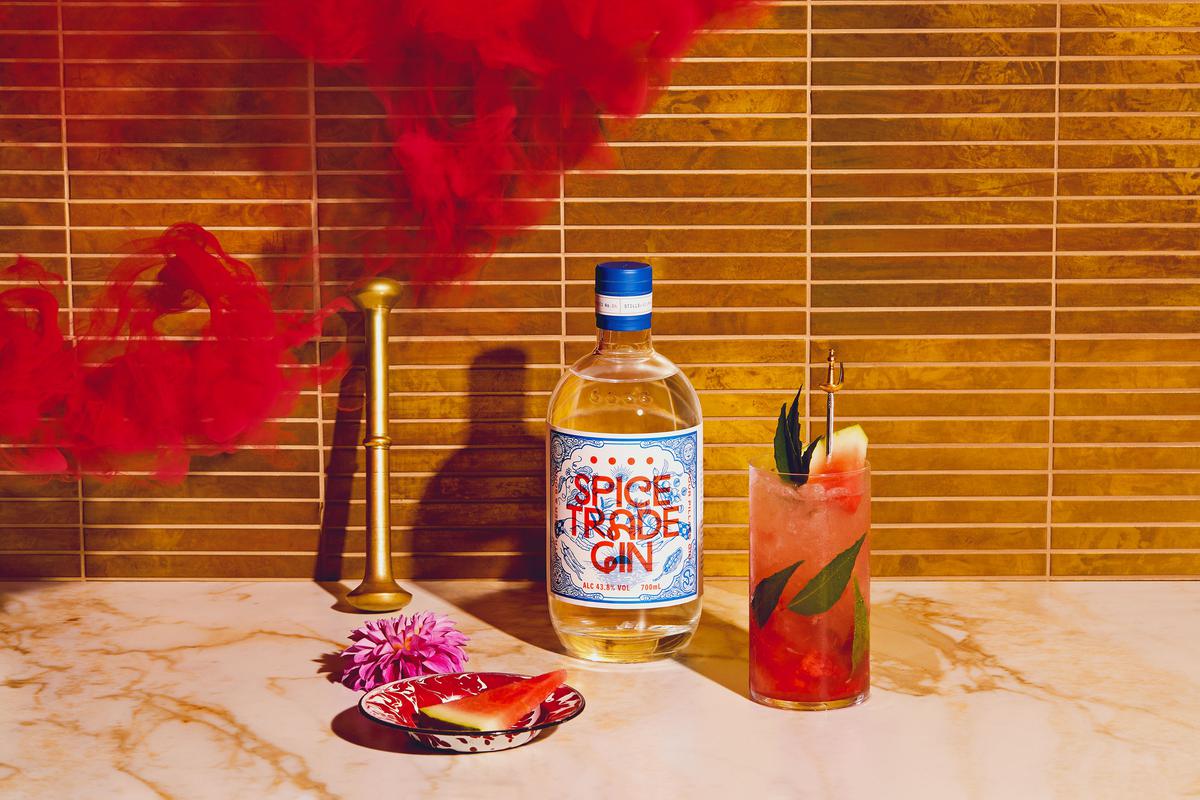[ad_1]
A collaboration between Third Eye Distillery and Four Pillars brings together the flavours of India and Australia, and introduces two limited-edition gins
A collaboration between Third Eye Distillery and Four Pillars brings together the flavours of India and Australia, and introduces two limited-edition gins
Now, you can taste lemon myrtle on a Goan beach, or a gin-and-tonic with cardamom twist on the Australian shore. The love of a good gin has created a cross-continental collaboration that has reaped two limited-edition spirits.
The founders of Goa-based Third Eye Distillery — Rahul Mehra, Sakshi Saigal and Vidur Gupta — met Australia’s Four Pillars Distillery team at the International Wine and Spirits Competition in London, when the former’s flagship gin, Stranger & Sons, scored an impressive 98/100. It was their second meeting, after an evening discussing gins at Bar Convent Berlin in 2019. Meanwhile, Cameron Mackenzie, Stuart Gregor and Matt Jones of the Yarra Valley distillery were at the ceremony to accept the trophy for the International Gin Distillery of the Year.
Rahul Mehra, Sakshi Saigal and Vidur Gupta
| Photo Credit: Assad Dadan
What started as a meeting of minds, led to trading ingredients across the Indian Ocean through a global pandemic. The teams embraced virtual tastings and invented ‘Zoom’ distilling. The Third Eye trio shared botanicals rooted in India’s heritage with the Australians to distil Spice Trade, while the Four Pillars reciprocated with unique flavours from Down Under to create Trading Tides. “To put it simply, you can expect two unique gins that combine the best of Australia and India in a bottle, through the expertise of two diverse distillers,” says Saigal.
Spice exchange
How does a distillery choose the best botanicals to reflect the terroir? “There were many emails sent, discussing Indian and Australian botanicals,” explains Mackenzie of Four Pillars. “Sakshi chose the Aussie lemon myrtle, river mint and anise myrtle, and we came to the decision of using Indian black and green cardamom, long pepper, teppal and fresh chilli. These spices created a vibrant, big and loud gin — just what we were after.”
After rounds of trial and error, the bouquet of botanicals that made the final cut were exchanged via ship between November 2020 and early 2021. “The gin at Four Pillars is spice forward, while Trading Tides is more citrus forward,” adds Saigal.

Cameron Mackenzie, Stuart Gregor and Matt Jones
| Photo Credit: Special arrangement
The two distilleries have produced 24,000 bottles each of Spice Trade and Trading Tides, for their domestic and global markets.
The botanicals in Spice Trade, distilled in Australia include a mix of native herbs, nuts and berries, along with the Indian additions such as anise and lemon myrtle, finger lime, black cardamom, cashew, cassia, coriander seeds, green cardamom, green schezwan ( tirphal), juniper, long pepper, macadamia nut, pepperberry, red chilli. While the botanical mix used in Goa, for Trading Tides Gin has their signature juniper berries, white pepper along with anise myrtle, lemon myrtle, rivermint, angelica and liquorice from Australia, with additions of Indian coriander, grapefruit peels, mangosteen, dried kokum and tamarind.

Spice Trade Gin
| Photo Credit: Special arrangement
At the Yarra Valley distillery, their first collaboration with Indian spices has been well received. “Spice Trade has been a hit among our gin fans. It’s something quite unique as it’s not a clean gin. The spices are oily, the two cardamoms and finger lime give a cloudy finish, while the turmeric fills the palate with a solid freshness. Our customers love it in a G&T with salt and lemon — it adds that bit extra to a classic cocktail,” Mackenzie shares.
Sustainable choices
Carbon neutrality at Yarra: “We’re extremely proud to be the first carbon neutral gin distillery in Australia. This certification, under Climate Active, is only awarded to businesses that have reached a state of achieving zero net emissions,” says Mackenzie. The team recycles, reuses and replenishes the environment, “from turning spent oranges into marmalade to feeding spent botanicals to local pigs for feed, and installing solar panels. To offset what can be an energy intensive production process we’re purchasing carbon credits which is helping us to achieve zero net emissions”.
Water conservation in Goa: “We’re mindful of our impact on the environment,” says Saigal. To reduce and preserve the water used for their 16-hour distillation run, Third Eye has invested in a tank that recycles the water (10,000 litres is saved per run). Water drained from the chiller is directed to the botanical garden on the premises. They have collaborated with No Nasties, a brand committed to organic, fair trade and vegan clothes, for their merchandise, and with Corugami for their shipper boxes made from sustainable materials that are 100% biodegradable. “Our most recent partnership with ecoSPIRITS will introduce low waste, low carbon spirits packaging technology,” he adds.
Mixing flavours
Third Eye Distillery is no stranger to collaborations. In 2020, Perry Road Peru, the country’s first distilled cocktail in a bottle — a partnership with The Bombay Canteen — married the pink guavas ( perus) from Perry Road carts in Bandra, Mumbai, with Stranger & Sons gin. The limited batch was such a hit, and a second (and final batch) was launched in 2021, along with ‘travelling meals’ prepared by The Bombay Canteen, pairing Indian flavours with the cocktail’s distinct sweetness.
As Trading Tides hits the local market, Saigal looks back, saying, “From first meeting the Four Pillars team at the Bar Convent Berlin [to now], this has been a thrilling collaboration.”
Trading Tides is ₹3,500 in Karnataka and Maharashtra, and ₹2,520 in Goa for a 720 ml bottle (42.8% ABV); Spice Trade retails at ₹3,250 in Karnataka, ₹2,750 in Maharashtra and ₹2,520 in Goa for a 700 ml bottle (43.8% ABV).
[ad_2]
Source link


